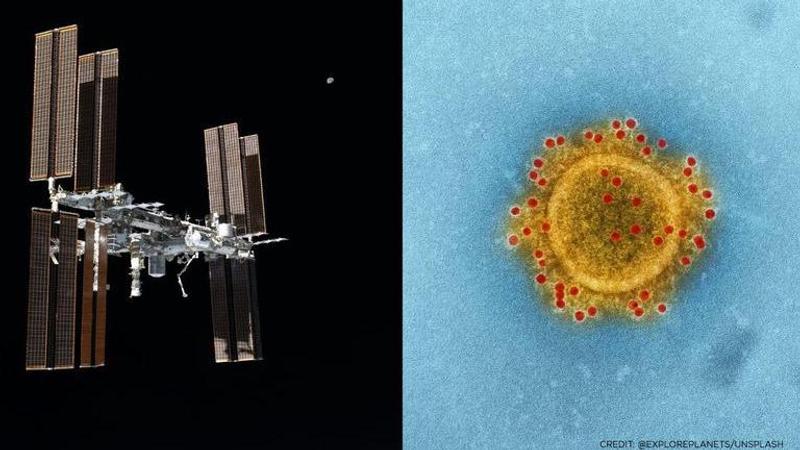Published 17:50 IST, February 9th 2021
NASA researchers reveal ISS has robust population of bacteria and fungi
Just like on Earth, there is a robust population of bacteria and fungi on the ISS, according to a NASA study that catalogued its exact composition.

Just like on Earth, there is a robust population of bacteria and fungi on the International Space Station (ISS), according to a study that catalogued its exact composition. The study published in Microbiome Journal found that samples from an air filter and a vacuum dust bag from the space station had opportunistic bacterial pathogens that are mostly safe on Earth but can lead to infections that result in inflammations or skin irritations. The researchers found that the human skin-associated bacteria Corynebacterium and Propionibacterium (Actinobacteria) but not Staphylococcus were more abundant on the station than in Earth-based clean rooms.
‘Comprehensive catalogue’ of fungi, bacteria
NASA scientists noted that similar bacteria are found in mundane Earth environments such as officer, hymns and hospitals, so the space station is similar to these other “built environments” frequented by humans. The research was necessary to understand the nature of the communities of microbes, the microbiome, in the space station to manage astronaut health and maintenance of equipment. To prevent any outbreak of deadly infections, astronauts, however, reduce the possibility through periods of quarantine prior to their mission.
Kasthuri Venkateswaran, a senior research scientist at NASA's Jet Propulsion Laboratory and a co-author of the paper, said, “Specific microbes in indoor spaces on Earth have been shown to impact human health. This is even more important for astronauts during spaceflight, as they have altered immunity and do not have access to the sophisticated medical interventions available on Earth”.
“In light of possible future long-duration missions, it is important to identify the types of microorganisms that can accumulate in the unique, closed environments associated with spaceflight, how long they survive and their impact on human health and spacecraft infrastructure,” Venkateswaran added.
Further, the research said that the study is the first “comprehensive catalogue” of the fungi and bacteria found on surfaces in a closed space system, such as the ISS. The research also said that this could lead to eventually developing safety measures for astronauts during spaceflights, although right now the rest to space flyers is unclear. It is worth noting that the astronauts had collected the samples during three flights spanning 14 months, a time span that allowed the researchers to see how the microbial and fungal populations changed over locations and during the time.
Updated 17:47 IST, February 9th 2021



